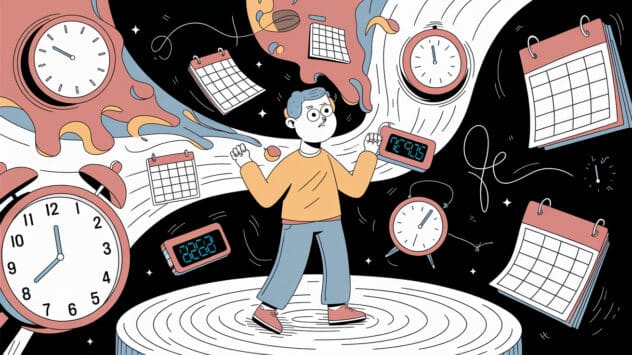Neurodivergence and Highly Sensitive Persons (HSP).
Ever Feel Like the World Is Just… Too Much? Bright lights? Too bright. That one shirt? Feels like sandpaper. Loud noises? Why does everything have to beep?! If this sounds familiar, you might be wondering, am I neurodivergent, a highly sensitive person, or just cosmically cursed? Maybe all three? Welcome to the world of Neurodivergence and Highly Sensitive Persons (HSP), where overstimulation, deep emotions, and an uncanny ability to detect vibes collide. Let’s break down what these terms actually mean, where they overlap, and why it sometimes feels like the world was designed by people with the sensory awareness of a potato.
What’s the Difference Between Neurodivergence and HSP?
Quick refresher for those who fell down a YouTube rabbit hole instead of paying attention to psychology lectures:
- Neurodivergence includes ADHD, autism, dyslexia, and other brain variations that operate outside the so-called norm. This isn’t just about being sensitive; it’s a full-scale difference in how information, emotions, and sensory input are processed.
- Highly Sensitive Person (HSP) is a term coined by Dr Elaine Aron for those who experience heightened emotional responses, deep processing, and intense sensory awareness. These people tend to feel things deeply, but that doesn’t necessarily mean they’re neurodivergent.
So, while all autistic people are likely HSP, not all HSPs are neurodivergent. It’s a bit like how all squares are rectangles, but not all rectangles are squares. Only with more existential dread and noise sensitivity.
Unlock peak brain performance with science-backed biohacks. Join free now & get your guide for just £4.99 (45% off)!

Where Neurodivergence and HSP Overlap
1. Sensory Overload: The Eternal Struggle
Ever walked into a shopping centre and immediately felt like you were about to be attacked by fluorescent lights, background music, and far too many people existing at once? Both neurodivergent individuals and HSPs can experience sensory overwhelm, but it plays out differently:
- Neurodivergence can mean extreme sensitivity to sounds, textures, smells, or even temperature changes. You might have a full-body reaction to that one specific fabric (looking at you, wool).
- HSPs also feel sensory input more intensely, but they might not experience the same level of sensory processing issues. They just… notice everything.
Either way, if you ever find yourself close to losing it in a shopping centre, just know you’re not alone. Also, noise-cancelling headphones are a literal lifesaver.
2. Emotions? Dialled Up to Eleven
Some people seem to glide through life emotionally unaffected. Then there’s us; crying over TV commercials, overthinking a passing comment for three days, and physically absorbing other people’s moods like they’re contagious.
Neurodivergence and Highly Sensitive Persons often experience the world in high definition, feeling emotions and sensory input more intensely than others. It’s not a flaw… it’s just how our brains are wired.
- Neurodivergent people often experience emotional dysregulation. Feelings aren’t just intense… they’re a full-blown event.
- HSPs feel emotions deeply, but they tend to be a bit better at self-regulating.
Either way, if you’ve ever felt personally attacked by a sad song, welcome to the club.
3. Social Exhaustion Is Real
For both neurodivergent people and HSPs, socialising takes energy. Other people are unpredictable, noisy, and don’t always pick up on subtle social cues.
- Neurodivergent people often deal with masking—pretending to be “normal” to fit in, which is utterly exhausting.
- HSPs overanalyze everything and absorb other people’s emotions like a sponge.
Result? Social burnout. The solution? Cancel plans, embrace solitude, and recharge.
How to Survive (and Thrive) as an HSP or Neurodivergent Person
1. Customise Your Environment
The world isn’t built for sensitive brains, but you can hack your surroundings to make life bearable.
Dim the lights, invest in soft clothing that doesn’t attack you, and for the love of all things holy, turn off unnecessary notifications.
2. Recognise Your Social Battery Levels
Not every invitation deserves a yes. Learning to say, “I’d love to, but I’m already at my limit” is the key to preserving your sanity.
Your social energy is finite, like your phone battery; except there’s no portable charger for human interaction.
3. Mindfulness, But Make It ADHD-Friendly
People say, “just meditate,” as if sitting in silence with your own thoughts is a good idea. Instead, try:
- Weighted blankets, for when you need to feel like a burrito of calm.
- Nature time, because trees don’t demand conversation.
- Journaling, because sometimes writing it down stops it from replaying in your brain at 3am.
Final Thoughts: You’re Not “Too Sensitive,” The World Is Just Loud
If you’ve ever been told, “you’re overreacting,” just know this: Neurodivergence and Highly Sensitive Persons aren’t flaws; they’re a unique way of experiencing the world. You pick up on things others miss, feel deeply, and notice the tiny details that make life richer.
Sure, the world can be overwhelming. But with the right strategies, you can thrive in it; on your terms.
And if you’re looking for a place where people actually understand what it’s like to live with a brain that feels everything? You’ve just found it.
Neurodivergence and Highly Sensitive Persons: Join Our Community
Tired of people telling you to just relax? Join us, where we share insights, resources, and support for neurodivergent and highly sensitive brains.








It seems that adding yet another “category/trait/diagnosis” to the already confusing mix of other neurodivergent traits is only going to make things even more difficult for the average person to understand and/or relate to…